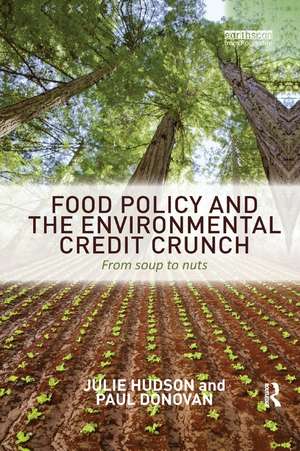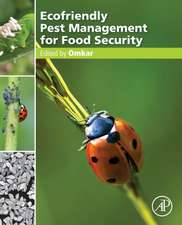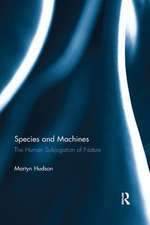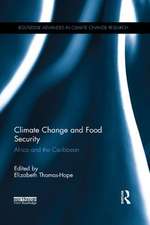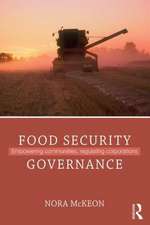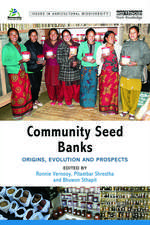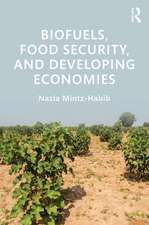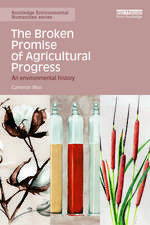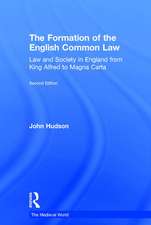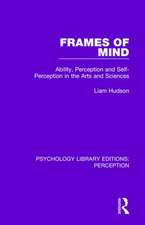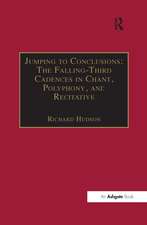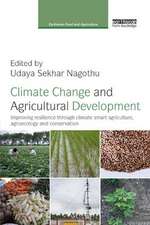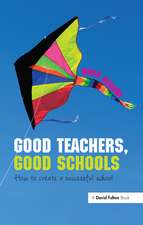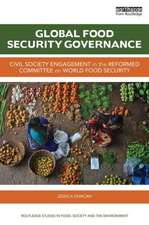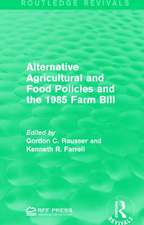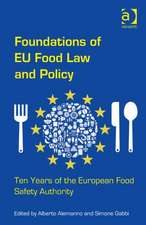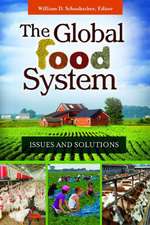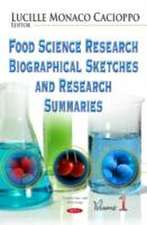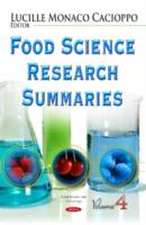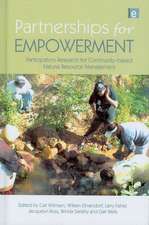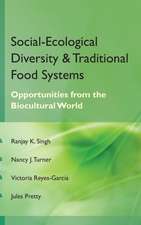Food Policy and the Environmental Credit Crunch: From Soup to Nuts
Autor Julie Hudson, Paul Donovanen Limba Engleză Paperback – 14 aug 2018
Food Policy and the Environmental Credit Crunch: From Soup to Nuts elaborates on the issues addressed in the authors’ first book, From Red to Green?,and asks whether the financial credit crunch could ameliorate or exacerbate the emergent environmental credit crunch. The conclusion drawn here is that a significant and positive difference could be made by changing some of the ways in which we procure, prepare, and consume our food.
Written by an economist and an investment professional, this book addresses the economic and environmental implications of how we treat food. The book examines each aspect of the ‘food chain’, from agriculture, to production and processing, retail, preparation, consumption and waste.
| Toate formatele și edițiile | Preț | Express |
|---|---|---|
| Paperback (1) | 215.81 lei 6-8 săpt. | |
| Taylor & Francis – 14 aug 2018 | 215.81 lei 6-8 săpt. | |
| Hardback (1) | 766.85 lei 6-8 săpt. | |
| Taylor & Francis – 20 sep 2013 | 766.85 lei 6-8 săpt. |
Preț: 215.81 lei
Preț vechi: 258.54 lei
-17% Nou
Puncte Express: 324
Preț estimativ în valută:
41.31€ • 44.89$ • 34.72£
41.31€ • 44.89$ • 34.72£
Carte tipărită la comandă
Livrare economică 21 aprilie-05 mai
Preluare comenzi: 021 569.72.76
Specificații
ISBN-13: 9781138383067
ISBN-10: 1138383066
Pagini: 240
Ilustrații: 21
Dimensiuni: 156 x 234 mm
Greutate: 0.44 kg
Ediția:1
Editura: Taylor & Francis
Colecția Routledge
Locul publicării:Oxford, United Kingdom
ISBN-10: 1138383066
Pagini: 240
Ilustrații: 21
Dimensiuni: 156 x 234 mm
Greutate: 0.44 kg
Ediția:1
Editura: Taylor & Francis
Colecția Routledge
Locul publicării:Oxford, United Kingdom
Public țintă
Postgraduate, Professional, and Professional Practice & DevelopmentCuprins
1. Overview: The Great Food Crunch 2. Raw Material Inputs: Mineral 3. Raw Material Inputs: Vegetable 4. Raw Material Inputs: Animal 5. Food Processing 6. Transport 7. Food Wholesaling and Retailing 8. Eating Food 9. Human Health and Food 10. Food Waste 11. Conclusion
Recenzii
[A]n engaging and surprisingly interesting new work examining the environmental impact of world food policies and changing production methods...Well researched, with footnotes, tables, and graphs to further illustrate points, this book is the rare academic title that is also relevant and well written enough to be enjoyed by general readers interested in the subject...Summing Up: Highly recommended.
– S. Hurst, Miami University, CHOICE
Hudson and Donovan provide a fascinating analysis of the environmental and economic costs of modern food. Their conclusion, that food waste must be managed across the entire food-chain, is a lesson humanity must learn if we are to avoid going hungry.
– Ruth Giradet, Stakeholder Engagement Director, Tesco plc.
A radical change in our relationship with the environment is long overdue. Food is central to that, culturally and economically. Following food from field to waste bin, this book details the power of culture in shaping economics - giving a fresh perspective on tackling the problem of sustainable food supply.
– Bernard Silverman, FRS; Senior Research Fellow, Smith School of Enterprise and the Environment, Oxford; Former President, Royal Statistical Society
This book is both revealing on the food situation today and has predictive potential. The food chain and its environmental and economic aspects, is of concern for all of us. Therefore, this book deserves a wide audience. It will confirm the ideas of the experts in the area, but it is most indicated for all who are active in the different steps of the food chain: from farmers, over processors and retailers, to concerned consumers and waste managers.
– Luc Hens, Environment and Pollution
The book closes with clear policy suggestions for each step of the food chain, ranging from "tax sugar and fat" to "reduce meat consumption by encouraging cultural change" to "change urban planning to allow more local food growing.
– Lucia A. Reisch, Economics and Social Sciences
– S. Hurst, Miami University, CHOICE
Hudson and Donovan provide a fascinating analysis of the environmental and economic costs of modern food. Their conclusion, that food waste must be managed across the entire food-chain, is a lesson humanity must learn if we are to avoid going hungry.
– Ruth Giradet, Stakeholder Engagement Director, Tesco plc.
A radical change in our relationship with the environment is long overdue. Food is central to that, culturally and economically. Following food from field to waste bin, this book details the power of culture in shaping economics - giving a fresh perspective on tackling the problem of sustainable food supply.
– Bernard Silverman, FRS; Senior Research Fellow, Smith School of Enterprise and the Environment, Oxford; Former President, Royal Statistical Society
This book is both revealing on the food situation today and has predictive potential. The food chain and its environmental and economic aspects, is of concern for all of us. Therefore, this book deserves a wide audience. It will confirm the ideas of the experts in the area, but it is most indicated for all who are active in the different steps of the food chain: from farmers, over processors and retailers, to concerned consumers and waste managers.
– Luc Hens, Environment and Pollution
The book closes with clear policy suggestions for each step of the food chain, ranging from "tax sugar and fat" to "reduce meat consumption by encouraging cultural change" to "change urban planning to allow more local food growing.
– Lucia A. Reisch, Economics and Social Sciences
Descriere
Written by an economist and an investment professional, this book addresses the economical and environmental implications of how we treat food. The book examines each aspect of the ‘food chain’, from agriculture, to production and processing, retail, preparation, consumption and recycling. Along the way, Donovan and Hudson explore the interaction between economics, the environment and human health and wellbeing, drawing on their respective economic and environmental perspectives.
